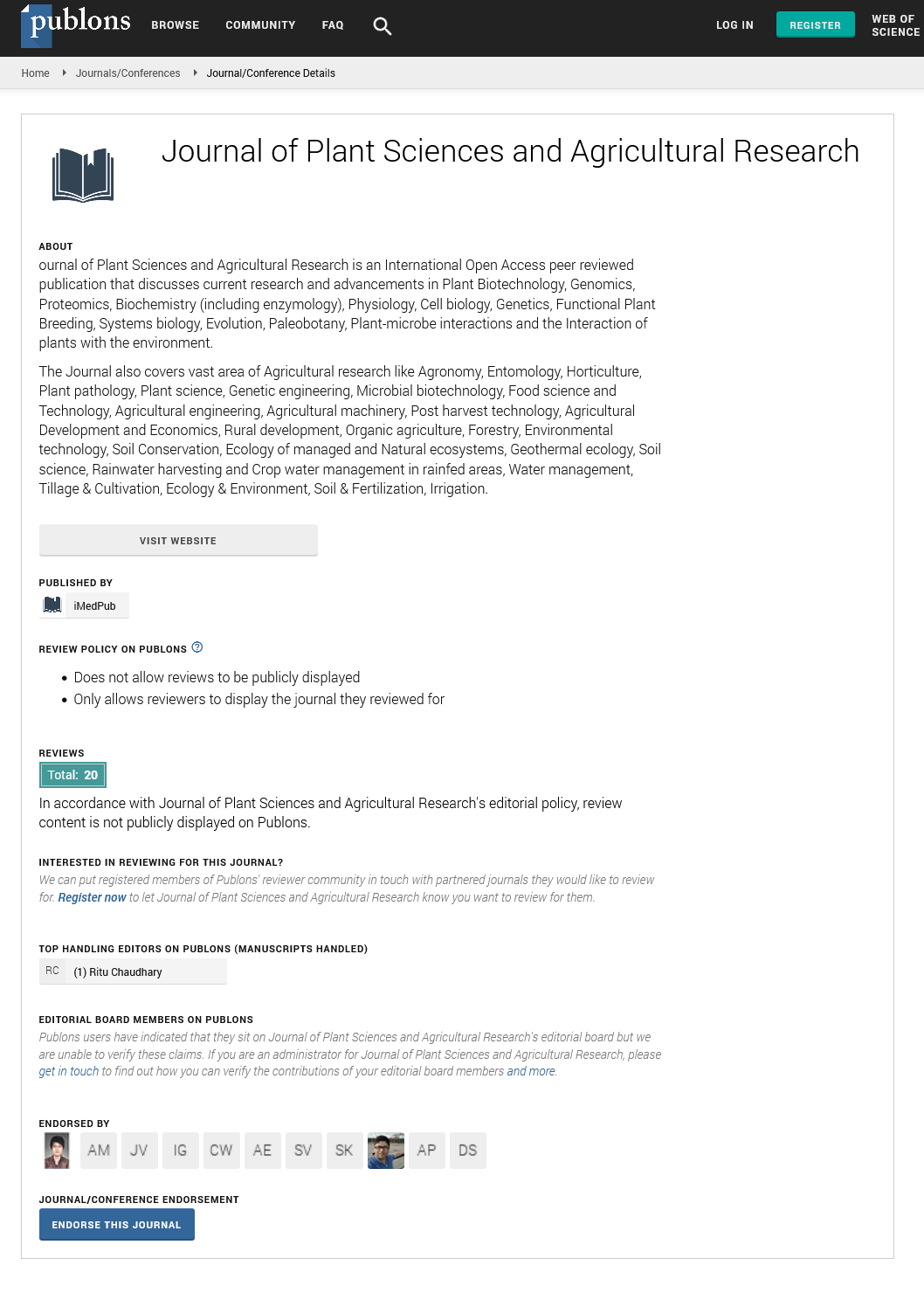Abstract
Studies on the Antimicrobial Potency of Five Crude Plant Extracts and Chemical Fungicide in in vitro Control of Aspergillus flavus, Causal Agent of White Yam (Dioscorea rotundata) Tuber Rot
Studies on the antimicrobial potency was carried out on five crude plant extracts (Piper nigrum, Zingiber officinale, Azadirachta indica, Carica papya and Nicotiana tabacum) and a chemical fungicide (mancozeb) using three concentrations of hot aqueous plant extracts (30, 60 and 90 g/l) and mancozeb (4, 8 and 12 g/l). The extracts and chemical were separately amended in potato dextrose agar (PDA) in in vitro control of Aspergillus flavus; causal agent of yam tuber rot. Rotten white yam tubers were collected from farmers’ barns at various locations in the study area and taken to Advanced Plant Pathology Laboratory, Federal University of Agriculture, Makurdi, Nigeria for analyses. A. flavus was isolated and identified from the rotten white yam tubers; pathogenicity test was carried out to confirm the actual organism associated with the rot in yam. The test revealed that A. flavus was able to incite rot in the healthy yam tubers. The results further showed that all the test plants were able to significantly (p<0.05) inhibit the mycelia growth of A. flavus in culture. Zingiber officinale was consistently observed to be more potent irrespective of concentration and duration of incubation; this was closely followed by Piper nigrum while Azadirachta indica was third in effectiveness. The least effective plant extracts were Carica papaya and Nicotiana tabacum, respectively. The synthetic chemical, mancozeb exceedingly gave 100% inhibition of the test fungus at all the levels of concentrations and throughout the period of incubation and was statistically significant with the extracts. The findings have shown the potential of plants in the control of yam tuber rot caused by Aspergillus flavus. The use of plant products will therefore, reduce over dependence on the use of synthetic chemicals by farmers in controlling pathogens of yams as well as reducing the cost of management and environmental pollution.
Author(s): Gwa VI, Akombo RA
Abstract | Full-Text | PDF
Share This Article
Google Scholar citation report
Citations : 135
Journal of Plant Sciences and Agricultural Research peer review process verified at publons
Abstracted/Indexed in
- Google Scholar
- Publons
- Secret Search Engine Labs
Open Access Journals
- Aquaculture & Veterinary Science
- Chemistry & Chemical Sciences
- Clinical Sciences
- Engineering
- General Science
- Genetics & Molecular Biology
- Health Care & Nursing
- Immunology & Microbiology
- Materials Science
- Mathematics & Physics
- Medical Sciences
- Neurology & Psychiatry
- Oncology & Cancer Science
- Pharmaceutical Sciences
